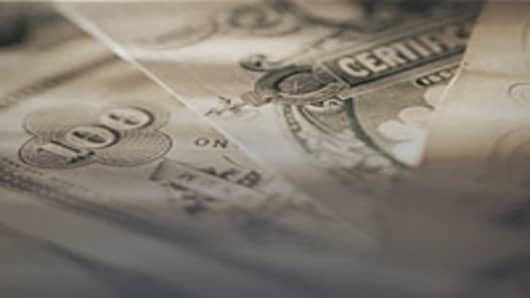Pimco's manager in charge of the world's largest bond fund, Bill Gross, may have made a mistake when betting against US bond prices earlier this year, but the economy has deteriorated faster than anyone had appreciated, analysts told CNBC Tuesday.
In January 2011, Gross told CNBC that US Treasurys were "the most overvalued bond in the universe," arguing one should stay away from it, but not necessary from all kind of bonds.
"Don't stay out of bonds… stay out of Treasury bonds," he said then.
A few months later, he was the first to admit that his predictions did not come true.
"When you’re underperforming the index, you go home at night and cry in your beer,” Gross said, according to the FT, adding: “It’s not fun, but who said this business should be fun. We’re too well paid to hang our heads and say boo hoo.”
Reactions were soon to follow.
"Obviously, it's a bit of a mistake," Guy Lebas, chief fixed income strategist at Janney Montgomery Scott, told CNBC on Tuesday. "Treasurys make up roughly a quarter of the US bond markets, so saying we're going to completely abandon them in a fund as large as the one Bill Gross runs is a huge bet, and it's a huge bullish bet on the credit market, it's a huge bearish bet on the bonds," he said.
Gross's expectations have clearly not gone through, Lebas added, "but economic conditions have deteriorated far faster than PIMCO, or even we ever anticipated."
Some events, such as the Federal Reserve's Chairman Ben Bernanke's use of non-conventional measuresto support the US Treasury were difficult to foresee.
"The Federal Reserve has made this additional commitment in the last two weeks," Lebas noted. "It has really supported the government bond markets," almost to the disadvantage of other asset classes in the fixed-income universe, Lebas explained.
What's the Alternative?
The other factor that may have contributed to Gross' mistake is the lack of a better alternative to US Treasurys in the government bond range. Gross' mea culpa happened the same day as both Italy and Spain, two of the notorious PIIGS countries, were to organize government bond auctions.
In Italy, "there are some changes already made to the policies that should, in fact, improve the fiscal situation, but I think that until September, it will be difficult to say how this will go down," Marco Bardelli, managing director of BDG Singapore, told CNBC on Tuesday before the outcome of the Italian bond auction was made public.
Italy came under pressure Tuesday as demand was relatively weak in its auction, despite the ECB buying bonds in the secondary markets.
With European countries struggling with their own sovereign debt and political issues, worries about their own public debt may have helped the US Treasury, analysts said.
"Italy and some other countries in the euro zone are basically trying to convince the whole euro zone that Eurobond is a necessary step, but we all understand that Germany is definitely not favorable on this idea," Bardelli said, pointing that each euro zone country is trying to pull the blanket and "maneuver within the euro zone to get the Eurobond decision made in favor of them."
In the end, a third option may start appearing, as a middle way between European and US Treasurys: high yield bonds.
"I think going forward, actually, it was a stronger argument that (Gross) made," Lebas said, "that now, with yields even lower, you should really be out of government bonds."
"We are bullish in the high yield sector," Lebas told CNBC. "That's a strong statement right now because obviously, high yield bonds have been particularly volatile over the course of the last three weeks or so. But I think if we go twelve months down the future, we're going to look at today as probably the biggest opportunity for high yields bonds since the financial crisis."
Bill Gross did say, in January that he thought bonds "in emerging markets, developing space, corporate space can produce four to five percent types of yields, the total return fund yields of 4,5 percent."
Bill Gross will appear on CNBC's "Kudlow Report" at 7 pm ET on Tuesday.


